ASUS ROG STRIX RTX 3090 OC Rendering Related Benchmarks
Next, we wanted to get a sense of the rendering performance of the ASUS ROG STRIX RTX 3090 OC.
Arion v2.5
Arion Benchmark is a standalone render benchmark based on the commercially available Arion render software from RandomControl. The benchmark is GPU-accelerated using NVIDIA CUDA. However, it is unique in that it can run on both NVIDIA GPUs and CPUs.
Download the Arion Benchmark from here. First-time users will have to register to download the benchmark.
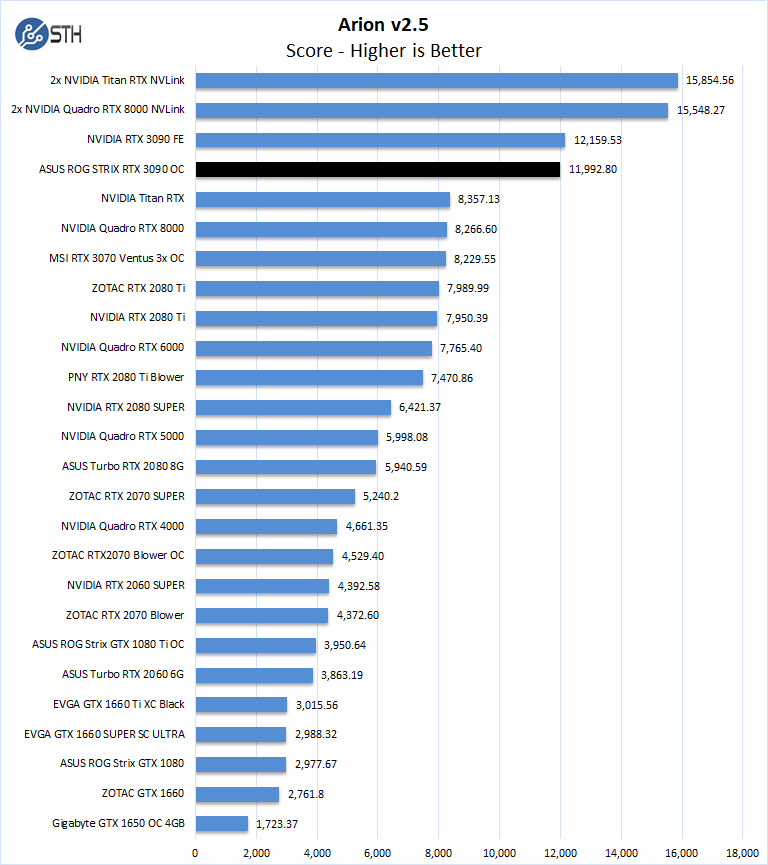
Like our first set of benchmarks, the ASUS ROG STRIX RTX 3090 OC shows impressive single GPU results. Here it is slightly behind the NVIDIA reference design.
MAXON Cinema4D 3D
ProRender is an OpenCL based GPU renderer that is available in MAXON’s Cinema4D 3D animation software. A fully functional 42-day trial version is available for downloaded from the MAXON website here. Note: Even after expiration, the trial can still be used to measure render times.
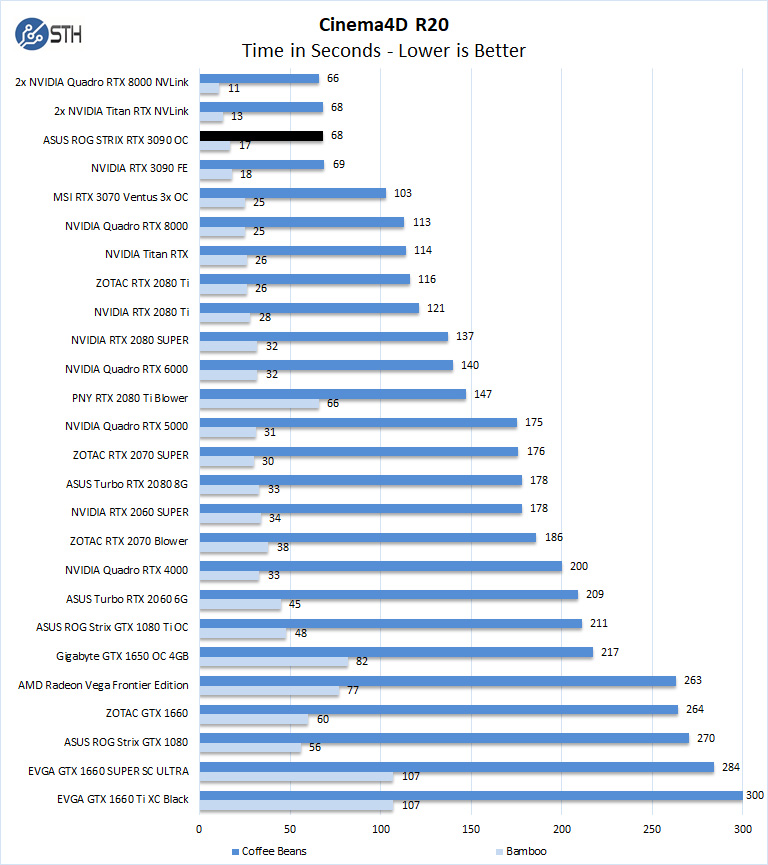
With a one-second difference versus the standard NVIDIA card, the ASUS ROG STRIX RTX 3090 OC shows respectable scores.
Redshift v3.0.31
Redshift is a GPU-accelerated renderer with production-quality. A Demo version of this benchmark can be found here.
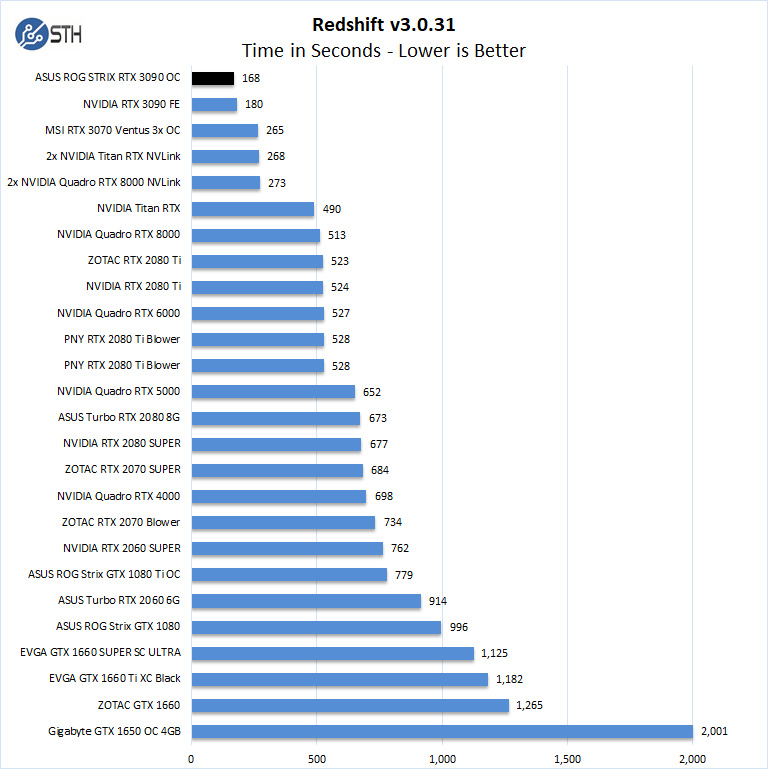
With Redshift, the ASUS ROG STRIX RTX 3090 OC crushes our Redshift demo benchmark at 4 minutes and 25 seconds. This is one of the first results where we saw an appreciable difference between the ASUS and NVIDIA branded cards.
Next, we will have 3DMark results before moving onto deep learning, power consumption, thermals, and our final thoughts.
ASUS ROG STRIX RTX 3090 OC 3DMark Suite Testing
Here we will run the ASUS ROG STRIX RTX 3090 OC through graphics-related benchmarks. Since these are starting to get very repetitive, we are just going to show our first three that we normally highlight.
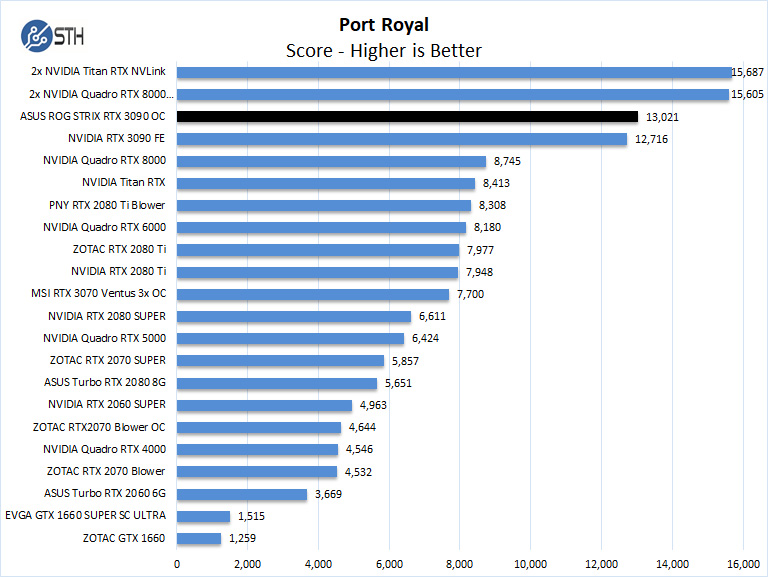
Here are the 3DMark suite results. We will discuss them after the charts.
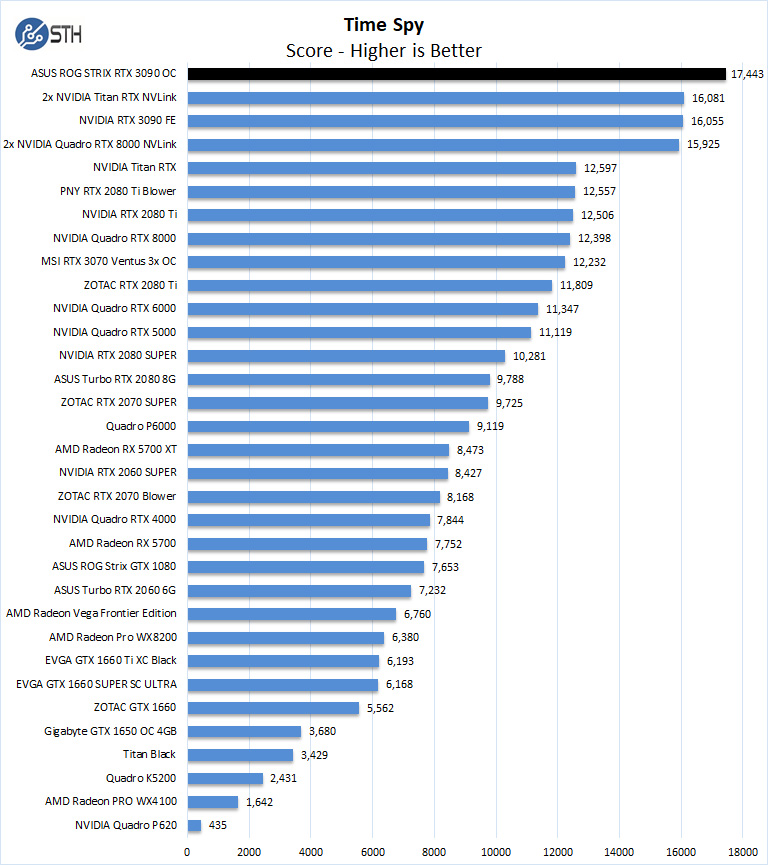
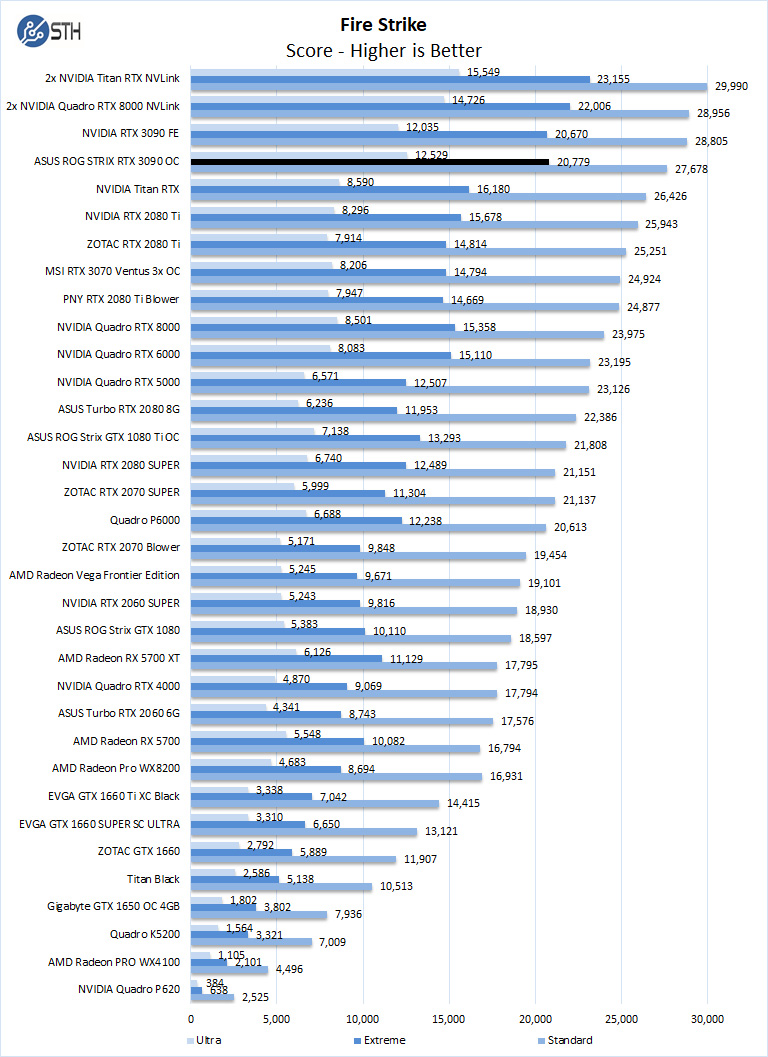
It is clear to see that a single ASUS ROG STRIX RTX 3090 OC offers up an incredible performance. The Time Spy result feels like it may be an outlier, but all we can do is keep the same test setup and present the data we collect.
Next, we will look at the ASUS ROG STRIX RTX 3090 OC with several Deep Learning benchmarks.




Great stuff, William! Thanks very much.
Thanks for the careful work! I would very much like to see how the Radeon VII, Radeon VII Pro and Titan V GPUs compare to the mix of performance numbers already obtained. These three graphics cards would have different performance characteristics compared to the others. It would be interesting to see the trade-off between fp64 and the 3D visualisation capabilities.
@Eric Olson, would be good to see the FP64 bars, certainly. VII Fp16 is not chopped liver either.